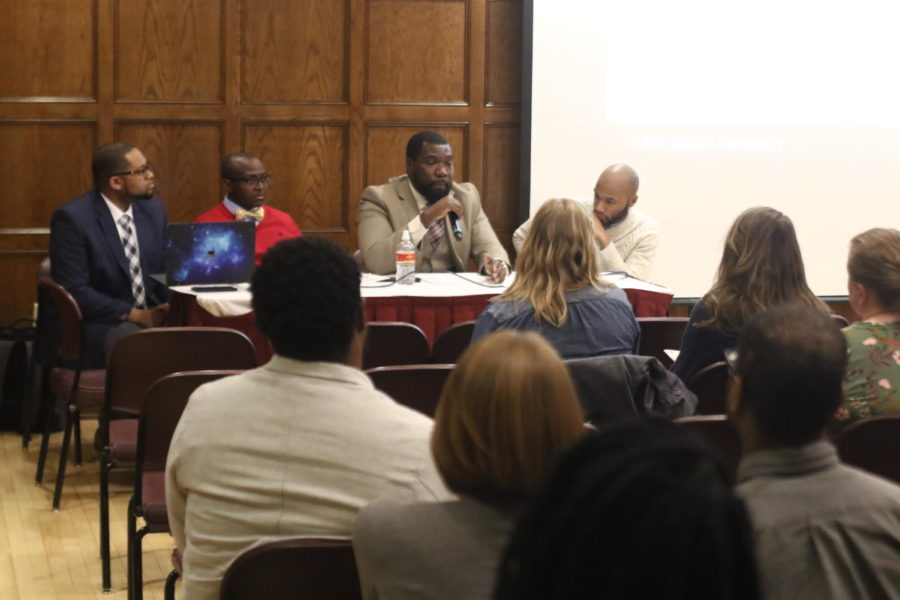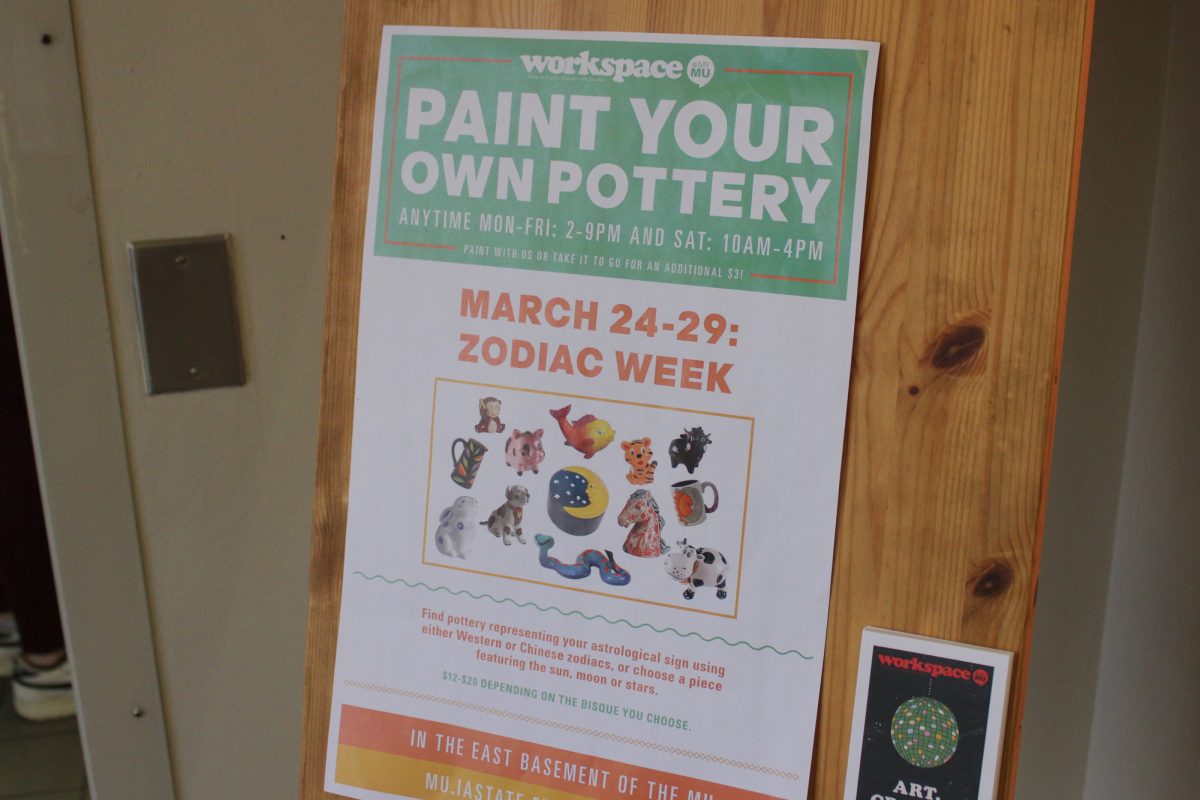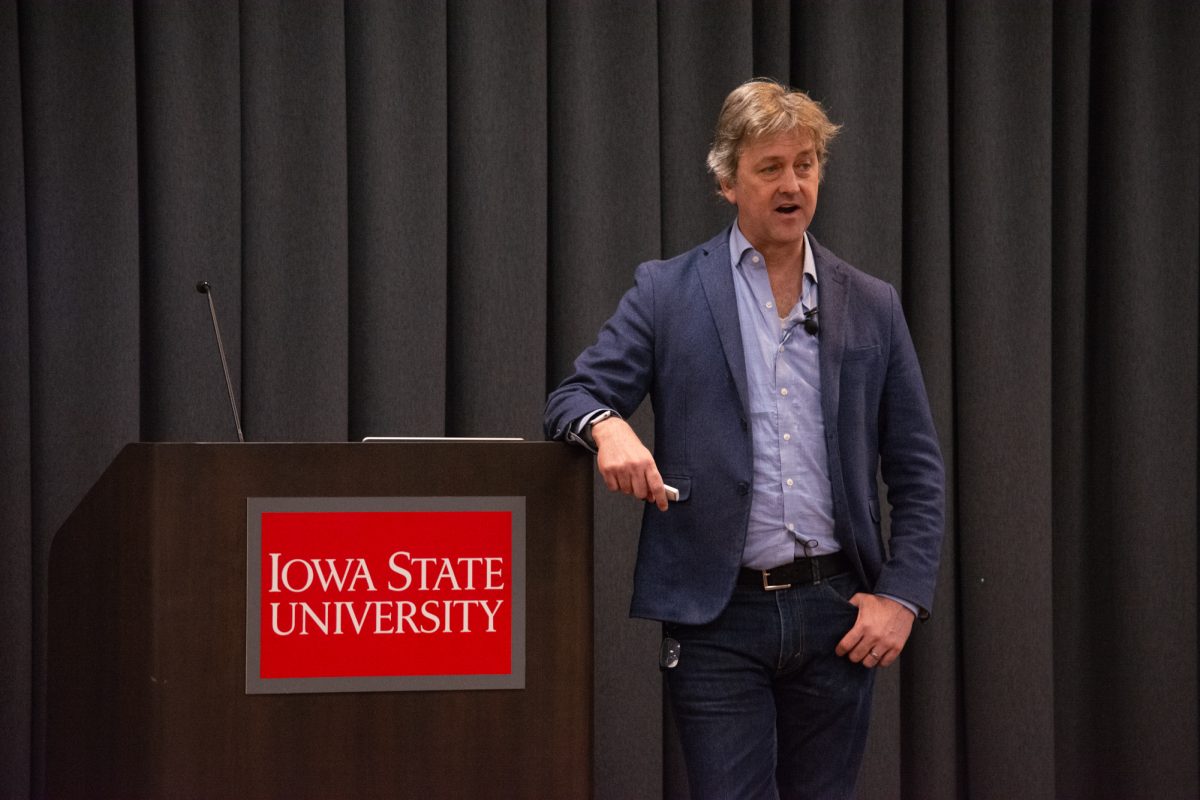3:10 to 4 p.m.: On Being Scholars: An Autoethnographic Account of Black men in Graduate Programs Discovering and Developing their Scholar Identity
Chris Jorgensen/Iowa State Daily
Panelists speak about being black graduate students during the ISCORE conference Friday in the Oak Room of the Memorial Union.
March 1, 2019
Four graduate students told their stories about underrepresentation of black men in higher education and how they developed their identity as scholars.
Jarrel Johnson, second year Ph.D. student in the college of education; Blayne Stone, Jr, first year Ph.D. student in the college of education; Kabongwe Gwebu, first year Ph.D. student in the college of education; and Steven Waddell, first year masters student in the college of education, researched and lectured on the topic.
Johnson said their idea came from the fact that there was a lack of representation of black males in graduate degree programs, and the lacking amount of literature discussing how black men discover their identities as scholars.
Stone said the group defined scholar identity as “a socially constructed and continuously evolving internalized academic identity.”
“This identity is derived from lived experiences of self, scholarly work, group interactions and creates knowledge and informs scholarship,” Stone said.
By asking how black men define their scholar identity, which individuals contribute to this development and examining the role race and gender identity play in development of scholar identity, among other questions, Waddell said they were able to conduct their study and gather the desired information.
Gwebu said that the shared themes they found in their responses to the questions showed that themes of being future orientation, self sacrifice and self perception were important in the development of scholar identity.
Presenters shared their personal experiences and how they informed their scholar identities. Gwebu said that being an international student from Africa gave him a different experience and informed his scholar identity differently than an experience that an African American student might experience.
Racial pride and representation, Johnson said, as well as feeling a need to combat microaggressions and stereotypes, acted as catalysts to inform black men’s scholar identities. However, Johnson said that combating microaggressions also causes burnout, as it causes increased and disproportionate internal stress.
Ways to assist black men in developing their scholar identity were discussed, including having increased representation of black faculty, retention initiatives and informal initiatives. Finding ways for institutions to directly work with black men in informing their scholarly identity instead of relying on individual faculty mentors to do it themselves was also discussed.







